Q
Is the 2025 Audi Q7 a mild hybrid?
Yep, the 2025 Audi Q7 does come with mild hybrid (Mild Hybrid) tech on some trims. It's all about that 48V setup, which chips in with a little extra oomph when you're accelerating and soaks up energy when you're decelerating or coasting. That's a real plus for Malaysia's stop-start city traffic, helping to boost fuel economy. Paired with the 3.0-liter TFSI turbo engine, this mild hybrid system not only sharpens up the power delivery but also cuts down on emissions – keeping things in line with the global push for greener motoring.
For Malaysian buyers, the upside here is better fuel efficiency and a smoother drive. And the good news? Maintenance costs should be on par with a regular gas-powered Q7, so you won't have to stress about things like battery replacements down the line.
On top of that, the Q7 keeps rolling with the luxury SUV tech we know and love – think virtual cockpit and that quattro all-wheel drive system – so it's got both the performance cred and the everyday practicality. If you're in the market for a premium SUV, the 2025 Q7's mild hybrid variants are definitely worth a look. But hey, as always, it pays to compare with other powertrain options, like plug-in hybrids or pure petrol models, to make sure you're getting the setup that best fits Malaysia's roads and your own driving style.
Special Disclaimer: This content is published by users and does not represent the views or position of PCauto.
Related Q&A
Q
What engine is in the 2025 Q7?
The 2025 Audi Q7 is expected to hit the Malaysian market with a range of powertrain options to cater to different buyer preferences. This includes the efficient 2.0-liter four-cylinder turbo and the punchy 3.0-liter V6 turbo, both paired with a 48V mild-hybrid system to boost fuel efficiency and smooth out the drive. There's also talk of a plug-in hybrid variant joining the lineup, offering that perfect blend of performance and eco-friendliness we're all after these days.
For Malaysian customers, picking the right Q7 means thinking about our local road conditions and fuel quality. The good news is Audi has tweaked their engine tech to handle our tropical heat and high humidity like a champ, and maintenance costs are pretty reasonable too.
It's worth noting that as the global auto industry shifts towards electrification, Audi's been busy expanding their new energy offerings. The hybrid Q7 isn't just about cutting emissions; it can handle short trips purely on electric power, which is super handy for Malaysian city driving. If you're craving more performance, the 3.0T V6 delivers that extra kick, while the 2.0T is the go-to for those who prioritize fuel economy.
Q
Is the Audi Q7 2025 safe?
The 2025 Audi Q7, as a luxury SUV, maintains the brand's usual high standards when it comes to safety. It's expected to come loaded with a bunch of advanced active and passive safety tech – think adaptive cruise control, lane-keeping assist, automatic emergency braking, that sort of stuff. On top of that, the body structure will likely use high-strength materials to boost crash protection. All these features should do a solid job of keeping you safe on Malaysia's sometimes tricky roads.
For Malaysian buyers, besides checking out the car's inherent safety features, it's also smart to keep in mind how the local climate affects maintenance. With all that rain, for example, your brake system or electrical components could get damp, so regular check-ups and servicing are a must.
It's worth noting that Malaysia's NCAP safety rating system is aligned with global standards, so consumers can use those test results as a good reference for evaluating a car's safety. And let's not forget, Audi Q7 models over the years have consistently scored well in global NCAP tests – that's a pretty strong vote of confidence for the 2025 version's safety credentials too.
Q
What engine is in the Audi Q7 2025?
The 2025 Audi Q7 is expected to continue offering a range of efficient powertrain options in the Malaysian market. These likely include the 2.0-liter TFSI four-cylinder turbo (around 245hp) and the 3.0-liter TFSI V6 turbo (approximately 340hp). There's also a good chance the plug-in hybrid variant (like the 55 TFSI e, boasting a combined 367hp) will stick around. All should come mated to the smooth-shifting 8-speed Tiptronic gearbox and Audi's legendary quattro all-wheel-drive system.
Now, Audi's been pushing hard on electrification lately, so the 2025 Q7 might see some tweaks to its hybrid setup. We could be looking at an improvement in pure electric range over the current model's roughly 40km, or maybe the addition of 48V mild-hybrid tech to boost fuel efficiency.
For Malaysian owners, it's worth remembering that our tropical climate can be tough on battery cooling systems, so regular checks are a good idea. On the plus side, the Q7's longitudinal engine layout and adaptive air suspension should handle our diverse local road conditions pretty capably.
If you're craving more performance, keep an eye out for the SQ7. Rumors suggest it might pack a 4.0-liter V8 diesel (though confirmation of its Malaysian arrival is still pending). If it does land, just be mindful of how local diesel quality can affect the DPF system.
Q
What are the upcoming Audi cars 2025?
Audi's gearing up to drop a bunch of new metal in Malaysia come 2025, spanning both electric and good old internal combustion. The one everyone's buzzing about? The all-new Audi A5 Sportback. Expect this bad boy to dial up the sporty vibes with fresh design language and likely pack an upgraded mild-hybrid powertrain under the hood. Then there's the highly anticipated Audi Q6 e-tron, a fully electric SUV built on the PPE platform. Word on the street is it'll dish out over 600 km of range and support blistering 270kW fast charging – that's some serious juice.
But wait, there's more for the speed demons. The Audi RS lineup is also set for updates, with revised RS3 and RS5 models in the pipeline. No matter which new model you're eyeing, you can bet they'll all come loaded with Audi's latest digital cockpit tech and driver assistance systems, keeping you connected and confident behind the wheel.
Here's the good news for Malaysian buyers: Audi's been steadily expanding its locally assembled (CKD) model range in recent years. That means some of these 2025 newcomers could roll off local production lines, potentially translating to more competitive price tags. On top of that, Audi Malaysia's continuing to beef up the charging network, aiming to make life easier than ever for EV owners.
If you're itching to get the lowdown on specs and prices specific to Malaysia, your best bet is to keep a close eye on Audi's official channels for the latest announcements. Trust me, you won't want to miss these.
Q
Which team is Audi replacing in 2025?
From what we've gathered through official channels so far, Audi is set to make its official factory team debut in Formula 1 in 2026, not 2025. When that happens, Audi will take over the operational reins at Sauber. Right now, Sauber races under the Alfa Romeo banner, but their partnership is slated to wrap up at the end of 2025. That clears the way for Audi to step in as Sauber's new title sponsor and technical partner starting in 2026.
For Malaysian fans, this is pretty exciting news. Audi's arrival should crank up the competition in F1 and bring some fresh technical ideas to the table. Their know-how in electrification, in particular, could really shape the future direction of the sport. F1 has been pushing hard with sustainable fuels and hybrid tech these past few years, and as a premium brand under the Volkswagen Group umbrella, Audi's experience in electrification might just give Sauber a serious competitive edge.
And let's not forget, Malaysia has hosted F1 races before. Even though there's no Grand Prix there at the moment, the local fanbase's passion for F1 is still going strong. Audi entering the fray could very well rekindle even more interest in the sport among Malaysian fans.
Q
How much is insurance for Audi Q7 2025?
When it comes to insurance costs for the 2025 Audi Q7 in Malaysia, the exact figure can vary quite a bit. It all depends on factors like the car's price, engine displacement, the type of coverage you go for—comprehensive or third-party only—the owner's age, driving history, and each insurance company's specific policies. As a general ballpark, comprehensive insurance tends to run around 1% to 3% of the vehicle's annual value. So, if we're looking at an estimated Q7 price tag of RM600,000 to RM800,000, you're probably looking at annual premiums in the range of RM6,000 to RM24,000.
Malaysia's car insurance market operates on a No Claim Discount (NCD) system, which is good news for safe drivers—you can score discounts of up to 55% if you keep that record clean. My advice? Always shop around and get quotes from multiple insurers, and maybe even chat with an insurance broker to nail down a more precise estimate tailored to your situation.
Also, with luxury cars like the Q7, insurance policies often come with extra perks or clauses—think things like coverage for original manufacturer parts or roadside assistance services. It’s crucial to really dig into the fine print when you’re comparing policies to make sure they cover exactly what you need.
And remember, Bank Negara Malaysia mandates that all vehicles on the road must have at least third-party liability insurance. Comprehensive coverage, on the other hand, gives you broader protection—covering things like accidental damage to your own car, theft, and even natural disasters. Ultimately, it’s about balancing your budget with your typical driving conditions and peace of mind.
Q
What trim levels are available for Audi Q7 2025?
The 2025 Audi Q7 is expected to hit the Malaysian market with three main trim levels: Base, S-Line, and Black Edition, each catering to different buyer preferences. The Base trim, as the entry point, comes loaded with practical features like standard LED headlights, a 12.3-inch digital instrument cluster, a 10.1-inch central touchscreen, and tri-zone automatic climate control. Stepping up to the S-Line trim, things get sportier with the addition of the S-Line exterior package, sport seats, 20-inch alloy wheels, and aluminum interior accents, which collectively up the luxury ante. Topping the range, the Black Edition makes a bold statement with its all-black exterior treatment, 21-inch wheels, Bang & Olufsen sound system, and panoramic sunroof – perfect for those who crave individuality and a bit more punch.
Under the hood, Malaysian buyers will likely have the choice of two petrol engines: a 2.0T four-cylinder and a 3.0T V6, both paired with an 8-speed Tiptronic transmission and Audi's legendary quattro all-wheel-drive system. It's worth noting that the Audi Q7 has long been a favorite among local high-end families and business professionals in Malaysia, thanks to its positioning as a premium German SUV. Its spacious seven-seat layout and advanced driver assistance systems, such as adaptive cruise control and lane-keeping assist, make it particularly well-suited for those long drives across Malaysia. Before making a decision, we strongly recommend heading to your authorized Audi dealer for a test drive to get a real feel for how each trim performs on the road.
Q
Does the 2025 Audi Q7 have ambient lighting?
The 2025 Audi Q7 does come equipped with ambient lighting, and this feature is either standard or available as an option in the Malaysian market, depending on the specific trim level. Typically, you're looking at multiple color choices and brightness adjustments, all customizable through the central infotainment screen or the MMI system. It's a nice touch that adds a personalized, premium feel to the cabin. For Malaysian buyers, these kinds of luxury amenities aren't just about sprucing things up – they enhance nighttime driving comfort and align with the desire for a refined in-car atmosphere, especially relevant in a tropical setting. Ambient lighting has become a key selling point in luxury SUVs these days, with rivals like the BMW X5 and Mercedes-Benz GLE offering similar setups. What sets the Q7 apart, though, is how its lighting can sync with driving modes – think a sporty red hue when you flip to Dynamic mode, for example. Plus, the light strips run across the dashboard and door panels, creating a nice wraparound visual effect. It's worth noting that the actual lighting impact might vary slightly depending on your choice of seat materials, like Valcona leather, or interior wood trims. If you're considering one, I'd definitely recommend heading to your local authorized Audi showroom in Malaysia to experience it firsthand in the flesh.
Q
How much is the new Audi 2025?
The official pricing details for the 2025 Audi models in Malaysia haven't been officially announced yet. But based on Audi's current pricing strategy in the Malaysian market and global model update trends, we can expect the entry-level models like the A3 or A4 to start somewhere between RM250,000 to RM350,000. For the higher-end models such as the Q7 or e-tron series, you're probably looking at prices exceeding RM500,000.
Audi models in Malaysia are typically sold either as CBU (Completely Built-Up) imports or CKD (Locally Assembled) units. Their prices are influenced by factors like import duties, optional configurations, and currency exchange rate fluctuations. If you're keen, it's best to keep an eye on Audi Malaysia's official website or check with authorized dealers for the latest and most accurate pricing and any ongoing promotions.
What's more, the 2025 Audi lineup is likely to bring in more electrified models and smart driving technologies. Think things like an upgraded MMI infotainment system or more efficient plug-in hybrid powertrains. These new tech features should definitely give Malaysian consumers even more great options to choose from.
If you're in the market for a luxury car, it's also worth cross-shopping with competitors like BMW and Mercedes-Benz in the same segment. Just keep in mind that different brands might offer varying configurations and after-sales service policies. And of course, nothing beats a test drive to really get a feel for how the car handles on the road.
Q
What should I pay for a 2025 Audi Q7?
The 2025 Audi Q7 starts at RM 459,990. This marks Audi's first SUV to be locally assembled in Southeast Asia, and it comes standard with the S Line exterior and interior packages across the range. Think black styling accents, 22-inch Audi Sport 5-spoke star alloy wheels, a roof spoiler, dark gray Audi badges, HD Matrix LED headlights, and OLED taillights – all part of the deal. Under the hood, you'll find a 3.0-liter V6 TFSI turbocharged petrol engine, paired with a 48V mild hybrid system, 8-speed automatic transmission, and quattro all-wheel drive. That translates to 340 horsepower and 500 Nm of torque, rocketing it from 0-100 km/h in just 5.6 seconds and on to a top speed of 250 km/h. And for the driving dynamics? Adaptive air suspension (which smartly adjusts ride height based on road conditions) and all-wheel steering (boosting cornering agility and high-speed stability) are also in the mix.
Popular Cars
Model Year
Car Compare
Car Photo
Latest Q&A
Q
Do I need an alignment after rotation?
Whether a four-wheel alignment is needed after tire replacement depends on the actual condition of the vehicle. If only the tires are replaced and the vehicle has been driving normally without deviation, steering wheel vibration, or uneven tire wear, a four-wheel alignment is usually not required immediately, but wheel balancing must be performed to ensure stability when the wheels rotate at high speeds. However, if problems such as directional deviation, reduced steering precision, misaligned steering wheel, or abnormal tire wear (e.g., one-sided wear) occur after tire replacement, four-wheel alignment is necessary to adjust the geometric parameters of the suspension system (including caster angle, front wheel camber, etc.), thereby restoring the vehicle's straight-line driving stability and uniform tire contact with the road. Moreover, if chassis component repairs (such as suspension or steering system) are involved during tire replacement or the vehicle has been in a collision, four-wheel alignment becomes an essential step, as it can effectively reduce abnormal tire wear, improve handling safety, and lower fuel consumption. It is recommended to check the alignment parameters regularly every 20,000 kilometers or once a year. If you frequently encounter rough road conditions (such as curbs or speed bumps) during daily driving, the inspection interval should be shortened accordingly. Professional technicians can measure the data using specialized equipment and compare it with the manufacturer's specifications to determine whether adjustments are needed.
Q
Is it okay to rotate tires every 10,000 km?
Rotating tires every 10,000 kilometers is a reasonable and necessary maintenance measure, especially for fuel vehicles, as this frequency can effectively balance the wear difference between front and rear tires. Tire rotation involves regularly adjusting the installation positions of tires (e.g., moving front tires to the rear), which ensures more uniform wear across all tires, thereby extending the overall service life by approximately 20%-30%. For fuel vehicles, it is recommended to rotate tires every 10,000 kilometers, while for new energy vehicles, due to their greater weight and stronger torque output, the interval should be reduced to 8,000 kilometers. During rotation, the cross-rotation method should be employed (i.e., moving front tires to the opposite rear positions), and tire pressure should be checked simultaneously to ensure it meets the specified standards (2.3-2.5 bar for fuel vehicles, with an additional 0.2 bar for new energy vehicles). It is important to note that if a tire exhibits abnormal unilateral wear, bulges, or tread depth below 1.6 millimeters, simple rotation is not recommended and the tire should be replaced immediately. Regular monthly tire pressure checks and removal of debris from treads can further enhance tire performance and safety.
Q
What happens if you don't rotate tires?
If tire rotation is not performed regularly, it will lead to uneven tire wear, which in turn causes multiple problems. For front-wheel-drive vehicles, the front tires bear both driving and steering functions, so their wear rate is significantly faster than that of the rear tires; for rear-wheel-drive vehicles, since power is concentrated on the rear tires, the rear tires wear more noticeably. Long-term failure to rotate tires will shorten the overall tire life by 20%-40%—the front tires may be scrapped prematurely while the rear tires remain relatively new, resulting in resource waste. In addition, uneven wear reduces traction, particularly on wet surfaces, which can easily lead to skidding or a 10%-15% increase in braking distance, thereby elevating driving risks. Irregular wear also exacerbates tire noise and increases fuel consumption by 0.3-0.8 liters per 100 kilometers due to uneven rolling resistance. It is recommended to rotate tires every 10,000 to 15,000 kilometers. For front-wheel-drive vehicles, the cross-rotation method should be employed (left front to right rear, right front to left rear), while for rear-wheel-drive vehicles, the rear tires need to be crossed to the front. After rotation, tire pressure (the standard value typically ranges from 2.3 to 2.6 bar) should be verified and wheel balancing performed to prevent high-speed vibrations. If the tires exhibit irregular wear patterns or the tread depth falls below 1.6 mm, they should be replaced immediately. Regular tire rotation not only prolongs tire lifespan but also enhances fuel efficiency and driving safety. The cost of a single rotation is approximately 50 to 100 ringgit, substantially lower than the expense of premature tire replacement.
Q
Is it good to rotate car tires?
Tire rotation is an important maintenance measure to ensure even tire wear and extend service life. It is recommended to perform it every 5,000 to 10,000 kilometers or when uneven wear is detected. For front-wheel drive vehicles, the front tires wear faster as they handle steering and braking tasks, so they need to be cross-rotated with the rear tires (left front to right rear, right front to left rear). For rear-wheel drive vehicles, the rear tires should be diagonally swapped with the front tires to balance the wear of the drive wheels. If the tires have a directional tread pattern or asymmetric design, the rotation direction must be maintained, and only front-to-rear swaps on the same side are allowed to avoid affecting handling on wet and slippery roads. After rotation, the tire pressure should be adjusted to the standard for the corresponding wheel position, and it is recommended to perform dynamic balancing and four-wheel alignment simultaneously to optimize driving stability. Note that snow tires or studded tires cannot be rotated, and tires with different front and rear sizes can only be swapped left and right. Regular rotation can reduce abnormal wear (such as uneven wear or wavy patterns), improve grip and driving quietness, reduce safety hazards caused by tire problems, and save replacement costs in the long run. The specific operation should be based on the vehicle manual. If there is a lack of guidance, the cross-rotation method for bias-ply tires or the same-side rotation method for radial tires can be prioritized.
Q
How often should car tyres be rotated?
The replacement cycle of car tires should be determined by comprehensively considering factors such as service life, mileage, driving habits, and environmental conditions. Generally, it is recommended to replace them every 3 to 5 years or after 60,000 to 80,000 kilometers of driving, whichever comes first. As rubber products, tires deteriorate over time. Even if the mileage threshold hasn't been reached, immediate replacement is necessary when sidewall cracks, bulges appear, or tread depth falls below 1.6 mm (verifiable with a coin test) to ensure safety. Due to their heavier weight and stronger torque output, new energy vehicles experience accelerated tire wear. It is advisable to shorten the inspection interval to every six months, with urban commuting replacement mileage typically ranging from 42,000 to 56,000 kilometers. Regular tire rotation helps distribute wear evenly. For front-wheel-drive vehicles, front-to-rear rotation every 8,000 to 10,000 kilometers is recommended, while for new energy vehicles with higher front axle loads, this interval can be reduced to 6,000 to 8,000 kilometers. Additionally, maintaining cold tire pressure at 2.3 to 2.5 bar (add 0.2 bar for new energy vehicles) and avoiding aggressive maneuvers like rapid acceleration and hard braking can extend tire lifespan by 15% to 20%. Tires exceeding 6 years from their production date (identifiable via the DOT code on the sidewall) should be replaced regardless of apparent condition.
View MoreRelated News

Audi RS6 sedan version may return to compete fully with the BMW M5
WilliamNov 21, 2025

Audi TT Moment 2.0 Debuts This September on Porsche EV Platform
MichaelAug 1, 2025
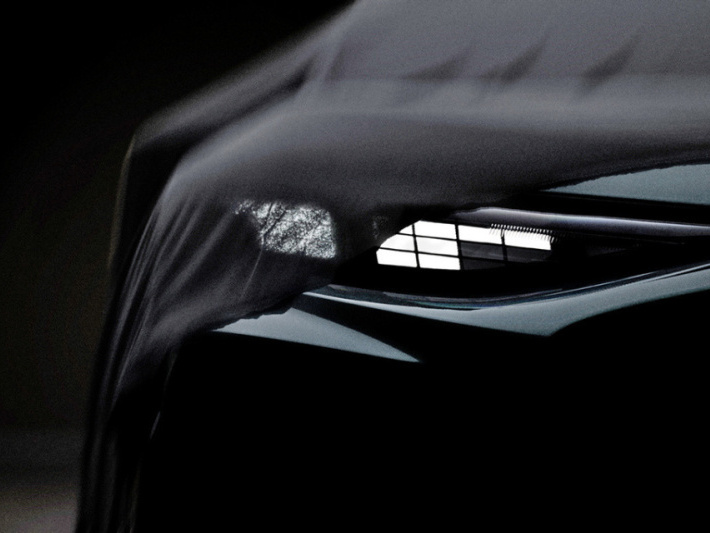
Beyond Expectations: All-New Audi Q3 Coming June 16
RobertJun 13, 2025
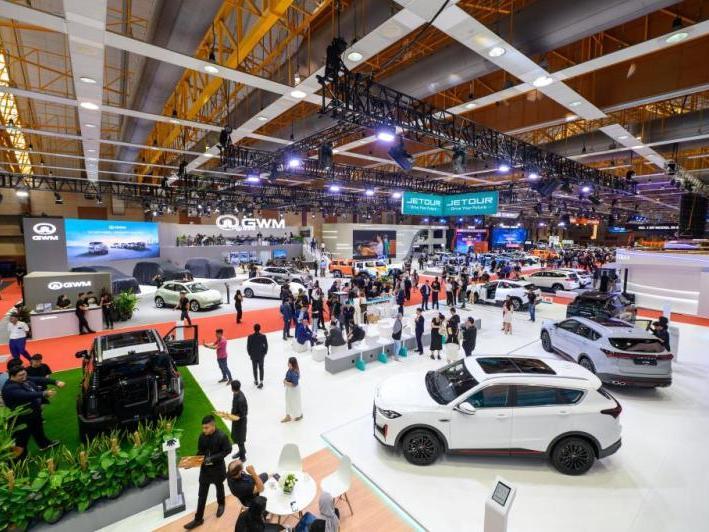
Summarizing the 2025 Malaysia Auto Show, a large number of new cars were launched in Malaysia this year.
MichaelMay 12, 2025
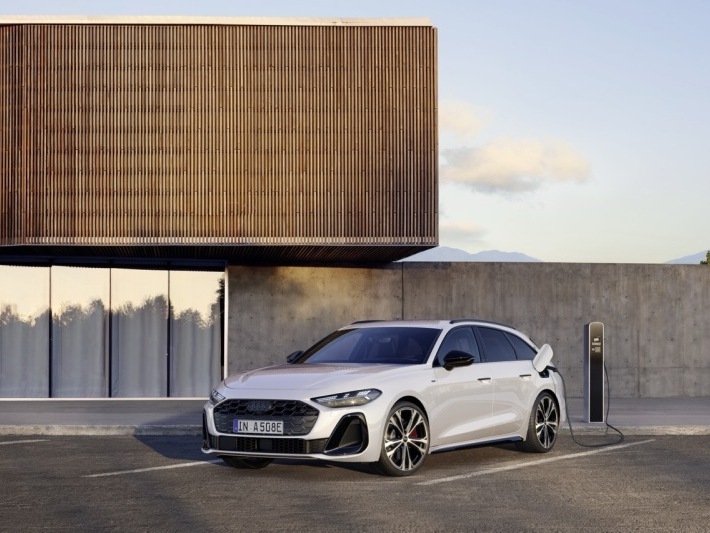
Audi A5 Launches Its First PHEV Version, Accelerating from 0-100 km/h in Just 5.1 Seconds
JohnMar 27, 2025
View More







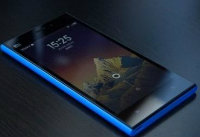




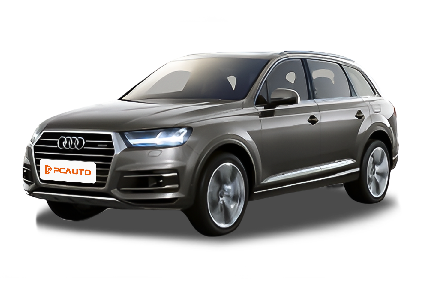



Pros
Cons